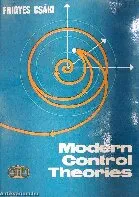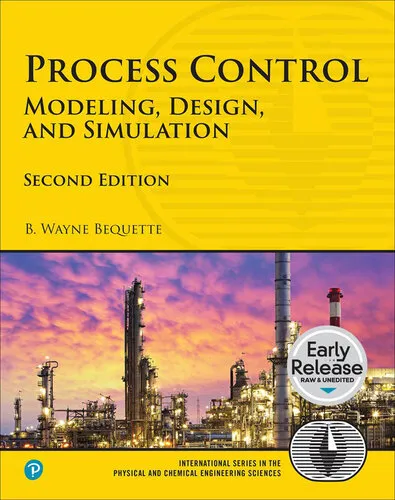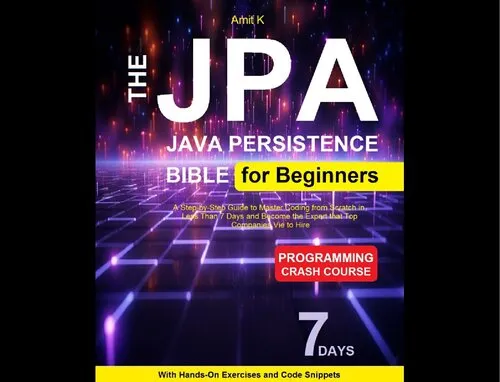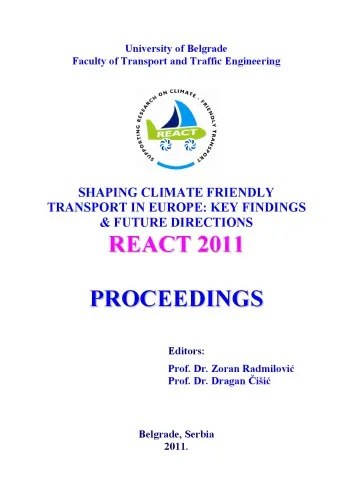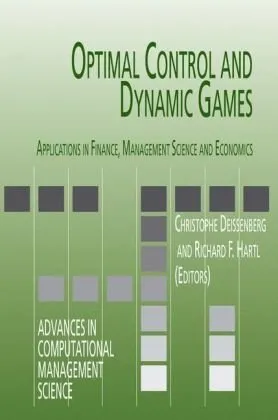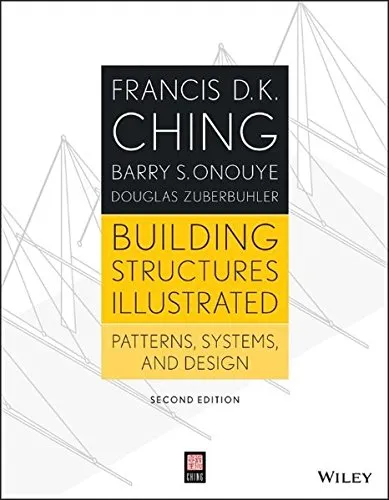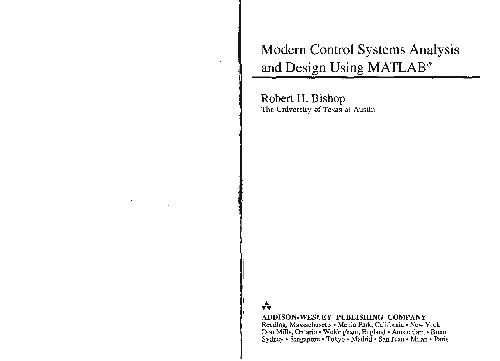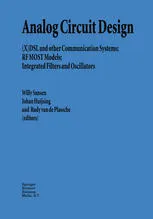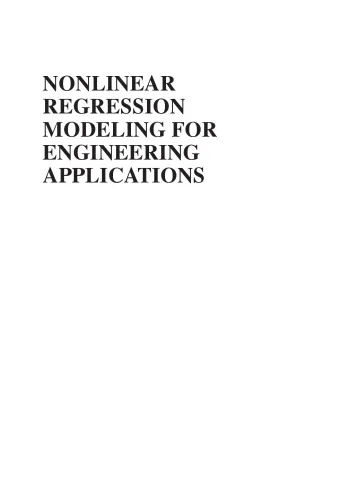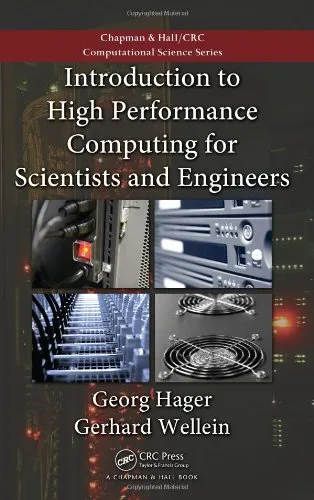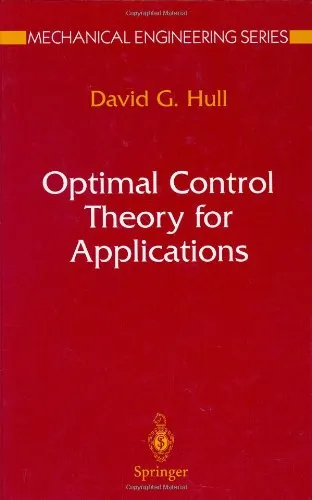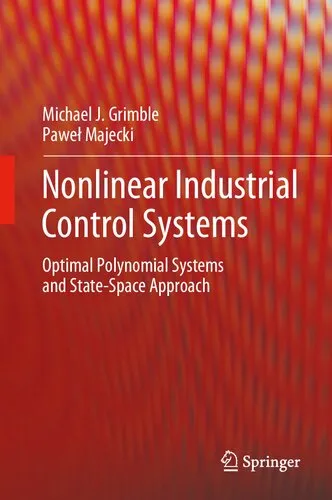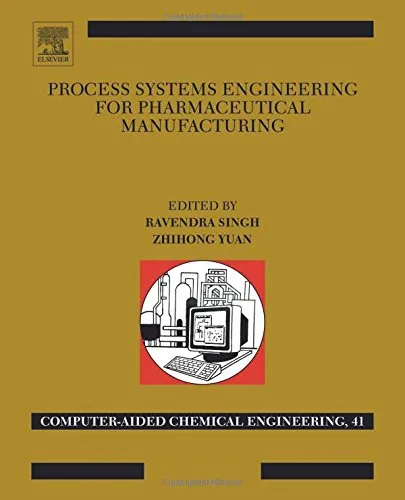Modern Control Theories: Nonlinear, Optimal and Adaptive Systems
4.0
بر اساس نظر کاربران

شما میتونید سوالاتتون در باره کتاب رو از هوش مصنوعیش بعد از ورود بپرسید
هر دانلود یا پرسش از هوش مصنوعی 2 امتیاز لازم دارد، برای بدست آوردن امتیاز رایگان، به صفحه ی راهنمای امتیازات سر بزنید و یک سری کار ارزشمند انجام بدینکتاب های مرتبط:
معرفی کتاب "Modern Control Theories: Nonlinear, Optimal and Adaptive Systems"
کتاب «Modern Control Theories: Nonlinear, Optimal and Adaptive Systems» نوشتهی F. Csaki یکی از آثار برجسته در حوزه تئوری کنترل مدرن به شمار میرود. امروزه با پیشرفتهای غیرقابلانکار در سیستمهای دینامیکی پیچیده و هوشمند، فهم و ارائهی رویکردهای جدید بهینه و تطبیقی در کنترل سیستمها از اهمیت بسیار بالایی برخوردار است. این کتاب منبعی جامع برای تشریح و بررسی روشها و نظریههای مدرن کنترل در سه شاخه مهم Nonlinear Control، Optimal Control و Adaptive Control است. در این معرفی، نگاهی جامع به ساختار و محتوای این اثر گرانبها خواهیم داشت.
خلاصهای از کتاب
کتاب در سه بخش اصلی سازماندهی شده که هر کدام به بررسی یکی از موضوعات اصلی در تئوری کنترل مدرن میپردازد. بخش اول به Nonlinear Control اختصاص دارد و در آن به تحلیل رفتار سیستمهای غیرخطی با استفاده از ابزارهای پیشرفتهای همچون سیستمهای دینامیکی غیرخطی و پایداری (stability) پرداخته شده است. بخش دوم به Optimal Control مرتبط است؛ در این بخش، مباحثی همچون مسائل بهینهسازی، نظریه کلیدی Hamilton-Jacobi-Bellman و بهینهسازی عددی بررسی میشوند. در نهایت در بخش سوم، تئوریهای Adaptive Systems مورد توجه قرار گرفته و نحوه طراحی سیستمهای کنترلی تطبیقی برای مقابله با تغییرات پویا در محیط تشریح میشود.
نویسنده با ارائه ترکیبی متعادل از ریاضیات پیشرفته، الگوریتمهای عددی و مثالهای کاربردی، مسیری مناسب برای تعامل میان تئوری و عمل فراهم کرده است.
نکات کلیدی کتاب
- مروری کامل بر تئوریهای Nonlinear Control و ابزارهای مدرن تحلیل سیستمهای غیرخطی.
- توضیح مباحث بنیادی Optimal Control و معرفی مدلها و کاربردهای پیشرفته آن.
- طراحی سیستمهای Adaptation-based برای افزایش کارایی در محیطهای پویا و نامعلوم.
- تشریح منابع پیچیده ریاضی با بیان روان و درکپذیر برای مهندسان و دانشجویان.
- ارائه مثالهای صنعتی عملیاتی در هر فصل برای ارتباط بهتر با مسائل واقعی.
نقلقولهای معروف از کتاب
“Modern control systems must not only be designed for performance but also for robustness and adaptability in an ever-changing environment.”
“The key to mastering nonlinear systems lies in understanding their inherent dynamics and leveraging advanced mathematical tools.”
چرا این کتاب مهم است؟
تئوریهای کنترل مدرن، به ویژه Nonlinear, Optimal و Adaptive، ستونهای اساسی برای طراحی سیستمهای پیچیده صنعتی، رباتیک پیشرفته، و الگوریتمهای هوشمند فراهم میکنند. این کتاب بهعنوان یک مرجع بینالمللی، نقش بیبدیلی در توسعه دانشجویان، پژوهشگران و متخصصانی که به دنبال تسلط بر این مفاهیم پیشرفته هستند، ایفا میکند. قابلیتهای این کتاب در ارائه مدلهای کاربردی و ریاضی برای مسائل واقعی، آن را به ابزاری ضروری در دنیای کنترل مدرن تبدیل کرده است.
با مطالعه این کتاب، خوانندگان میتوانند دانش خود را برای طراحی و تحلیل سیستمهای پیچیده، مدیریت تغییرات پویا، و بهبود عملکرد در شرایط متغیر به سطح بسیار بالاتری ارتقا دهند. بنابراین، این کتاب نه تنها بهعنوان یک منبع آکادمیک بلکه بهعنوان یک ابزار عملی برای مهندسان و طراحان سیستم نیز از اهمیتی ویژه برخوردار است.
Introduction to "Modern Control Theories: Nonlinear, Optimal and Adaptive Systems"
Welcome to "Modern Control Theories: Nonlinear, Optimal and Adaptive Systems", a comprehensive exploration of advanced control system methodologies that play pivotal roles in modern engineering and technological advancements. This book is designed to provide in-depth knowledge of nonlinear, optimal, and adaptive control theories, making it essential reading for both students and practitioners in the field of control systems and automation engineering.
As control systems have evolved over the years, their complexity has significantly increased. Traditional control mechanisms are no longer sufficient to address the demands of dynamic and unpredictable system behaviors. This book bridges the gap by emphasizing advanced techniques that extend beyond classical methodologies, empowering engineers to solve cutting-edge control challenges. By focusing on nonlinear dynamics, optimization algorithms, and adaptability, readers will gain tools to design robust and intelligent control mechanisms for diverse applications, from aerospace to renewable energy systems.
Detailed Summary of the Book
The book is structured to provide a thorough foundation in key areas of control theory, ensuring readers not only understand the underlying principles but can also apply them in real-world systems. It begins with an introduction to nonlinearity in control systems, highlighting the mathematical models and concepts that break the assumptions of linearity. Readers will discover methods for analyzing and stabilizing nonlinear systems while gaining insight into their unique behaviors.
Subsequent chapters explore the principles and applications of optimal control. The mathematical framework for optimization, including dynamic programming and cost function minimization, is presented in an accessible way. Practical case studies are integrated to provide a hands-on understanding of how these methods improve system performance and efficiency.
Adaptive control theories form the last major component of the book. These chapters examine how systems can adjust their parameters in response to changing environments or uncertainties. From model reference control to self-tuning regulators, this section reveals how adaptability enhances system resilience and robustness.
In addition to theoretical discussions, the book includes programming examples and simulation exercises that allow readers to implement these advanced control concepts. The integration of theory, practice, and problem-solving ensures a complete and engaging learning experience.
Key Takeaways
- Understand fundamental concepts of nonlinear dynamics and their implications for control systems.
- Master optimization techniques, including dynamic programming and Pontryagin's Maximum Principle.
- Explore adaptive control strategies to make systems more robust and resilient.
- Gain practical skills through simulation exercises and real-world case studies.
- Develop problem-solving abilities to tackle modern engineering challenges.
Famous Quotes from the Book
"The future of control engineering lies in embracing complexity, not avoiding it. True mastery begins where classical assumptions end."
"Adaptive systems are not just tools; they are aspirations for intelligence in a world of uncertainty."
"Optimality is not a static target; it is a dynamic state that evolves with context and conditions."
Why This Book Matters
The relevance of Modern Control Theories: Nonlinear, Optimal and Adaptive Systems cannot be overstated. In an era of rapid technological advancements, systems are becoming increasingly complex. Traditional linear control methods fall short when faced with nonlinearity, unpredictability, and variability. This book steps in to address these gaps, offering insights and techniques that align with the demands of modern engineering applications.
The advanced topics covered in this book have direct applications in industries such as automation, robotics, aerospace, automotive engineering, and renewable energy. Whether you're an academic looking for a deeper understanding of control theory, a professional seeking to solve challenging engineering problems, or a student preparing for a career in modern technologies, this book provides the knowledge and skills to succeed.
Moreover, the carefully crafted content, combining theory and practice, ensures accessibility and engagement for readers at all levels. With its clear explanations, real-world applications, and rigorous approach, this book is an essential resource for anyone committed to mastering modern control systems.
دانلود رایگان مستقیم
شما میتونید سوالاتتون در باره کتاب رو از هوش مصنوعیش بعد از ورود بپرسید
دسترسی به کتابها از طریق پلتفرمهای قانونی و کتابخانههای عمومی نه تنها از حقوق نویسندگان و ناشران حمایت میکند، بلکه به پایداری فرهنگ کتابخوانی نیز کمک میرساند. پیش از دانلود، لحظهای به بررسی این گزینهها فکر کنید.
این کتاب رو در پلتفرم های دیگه ببینید
WorldCat به شما کمک میکنه تا کتاب ها رو در کتابخانه های سراسر دنیا پیدا کنید
امتیازها، نظرات تخصصی و صحبت ها درباره کتاب را در Goodreads ببینید
کتابهای کمیاب یا دست دوم را در AbeBooks پیدا کنید و بخرید
